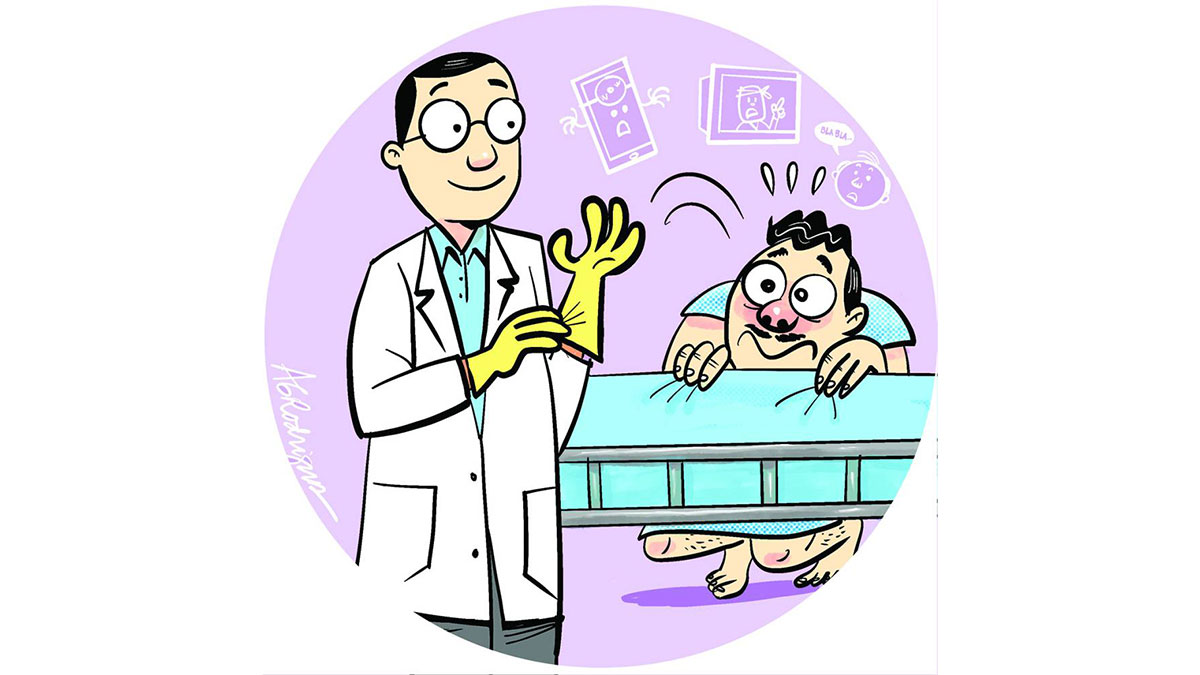WHAT doctors tell their patients, and how they tell it, can often spell the difference between recovery and death. The tremendous influence of mind over body is well known. But nobody knows exactly how it works, or how to control it.
In his influential 1989 book “Quantum Healing,” internationally known endocrinologist, guru, holistic healer and prolific author Dr. Deepak Chopra mentioned two dramatic examples of how his words seriously affected the course of his patient’s illness. The first one died while the second completely recovered.
“In my own practice,” said Dr. Chopra, “I saw a lung cancer patient who had lived comfortably with a coin-sized lesion in his lungs for five years. He did not even suspect that it was cancerous, and since he was in his 60s, the lesion was growing quite slowly. However, as soon as I told him that the lesion was consistent with a diagnosis of lung cancer, he became terribly agitated. Within a month he started to cough up blood; within three months he died.
“Another patient of mine, a quiet woman in her 50s, came to me about 10 years ago complaining of severe abdominal pains and jaundice. Believing that she was suffering from gallstones, I had her admitted for surgery, but when she was opened up, it was found out that she had a large malignant tumor that had spread to her liver, with scattered pockets of cancer throughout her abdominal cavity.
“Judging the case inoperable, her surgeons closed the incision without taking further action. Because the woman’s daughter pleaded with me not to tell her mother the truth, I informed my patient that the gallstones had been successfully removed.” (This patient was expected to live for only a few months).
“Eight months later, I was astonished to see the same woman back in my office for a routine physical exam, which revealed no jaundice, no pain and no detectable signs of cancer. And it never returned.”
I met Dr. Chopra in the mid-’90s when we were both invited as resource speakers at an International Conference of the Young President’s Organization (YPO) in Taipei.
He attended my presentation and I attended his talk about quantum healing, which drew hundreds of people.
Panic, depression
Many Filipino doctors, it seems, do not realize the tremendous impact their words have on their patients. I’ve heard doctors tell patients they have only so many months to live. Hearing that can lead a patient to panic, depression or even suicide.
Who can really tell, except God, how long a person will live?
A close family friend, a well-known beauty and wellness guru, once told me that her mother was told by her doctors she had less than a year to live. But she died 10 years later. So, predictions of death by doctors are not always reliable and should not be taken as gospel truth by patients.
Another observation I have about doctors in the country is that some do not want patients to question them. They expect patients to do whatever they tell them.
But some patients are curious and intelligent, and they want to know the nature of their sickness and what they can do about it in detail.
I want to know why a certain medicine is being prescribed to me and what the mechanism of the drug is, its side effects and drug interactions. If the doctor does not tell me these things, I do my research or seek another opinion.
Recently, I told one cardiologist that I bought the medicine he had prescribed, but I did not take or drink it. When he asked me why, I told him I had read that it had many side effects, which even included death.
He told me to trust him and advised me not to read too much. However, he changed the original medicine he had prescribed for me. The new one had less side effects. You see?
Patients naturally expect their doctors to give them more hope rather than the opposite. Doctors should weigh the impact of their words vis-a-vis the patient’s psychological reaction. If the patient is the nervous or worrisome type, the doctor should not be overly discouraging.
The 19th-century French pharmacist-turned-healer Emile Coue discovered that if he praised or said a good word about a medicine he gave his patients, it became more effective than if he did not say anything.
He knew the power of suggestion long before Anton Mesmer came up with his theory of mesmerism.
It was Coue who made this positive affirmation famous: “Every day, in every way, I am getting better and better.”
He asked his patients to repeat this 16 times a day, and they generally got better.
Coue’s discovery of conscious positive suggestion became the basis for several very successful positive thinking programs in the US and beyond.
The next Inner Mind Development seminar is on Sept. 3-4, 9 a.m.-5 p.m. Call 8107245 or 0998-9886292; e-mail [email protected].










































